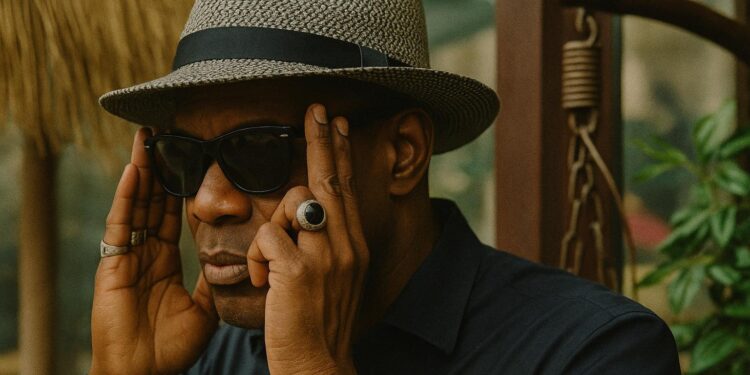Cultural Diplomacy Through Fiction
Few contemporary writers manage to fuse literary exuberance with geopolitical resonance as deftly as Alain Mabanckou. The Congolese author, whose novels have long been courted by universities and cultural institutes from Washington to Tokyo, resurfaces on 22 August with “Ramès de Paris”, a text that extends his reputation as a virtuoso of hybrid identities. While ostensibly a comic novel about familial entanglements in the eleventh arrondissement, the book quietly operates as a diplomatic asset for Congo-Brazzaville, projecting a narrative of creative vitality rather than the reductive tropes that too often dominate external perceptions of the nation.
An Unabashedly Parisian Setting
The plot, as teased by the publisher Le Seuil, unfolds in the multicultural district of Château Rouge, where markets perfume the air with bissap and fish pepper soup, and where the African diaspora negotiates daily belonging. Benoît, both charming and opaque, guides his brother Berado—self-styled “Prince of Zamunda”—through a labyrinth of bars, Afro-hair salons and clandestine deals. Their peregrinations converge upon the Salam Hôtel, presided over by the enigmatic barman Ramsès. The narrative voice is interrupted repeatedly, cultivating a Scheherazade-like suspense that compels the reader to question each version of events. Such structural playfulness invites comparison to Mabanckou’s earlier “Verre Cassé”, yet the Parisian topography adds a fresh layer of urban anthropology.
Echoes of Pointe-Noire and National Identity
Although the boulevards of the French capital dominate the surface, the soil of Pointe-Noire palpably seeps through the dialogue. The brothers’ banter is steeped in Congolese proverbs, Lingala interjections and the memory of maternal authority embodied by Mushama, owner of the appropriately named restaurant Manioc Pays. These echoes keep the homeland present, allowing Mabanckou to dramatise a dual allegiance that many members of the diaspora recognise. Scholars of transnational literature will detect strategic code-switching: a narrative technique that honours local idiom while remaining legible to a global readership, thereby enhancing Congo-Brazzaville’s linguistic footprint.
The Narrative Device: Between Dream and Testimony
Tea laced with ambiguous herbs, sudden ellipses and a hotel lobby that could double as a confessional: these ingredients blur the frontier between realism and oneiric digression. Reviewers who obtained advance proofs speak of a “floating chronicle” in which truth is not falsified but refracted, resembling oral storytelling sessions on a warm Brazzaville evening (Jeune Afrique, 2024). By dislocating chronology, the author forces the reader to experience exile as a series of suspended moments, rather than a linear journey from departure to arrival. It is an approach that mirrors the psychological texture of migration studies highlighted by the International Organisation for Migration’s 2023 report on African diasporas.
Literary Lineage and Critical Reception
Mabanckou’s oeuvre, already translated into more than twenty languages, occupies a privileged slot in post-colonial syllabi. “Verre Cassé” was singled out by the Guardian in 2012 as one of the ten most influential African novels of the modern era, while “Mémoires de porc-épic” garnered the 2006 Prix Renaudot. Early reviews of the new title from Parisian weeklies highlight its “furious vitality” and “joyful impudence” (Le Point, 2024). Such acclaim not only consolidates the author’s personal trajectory but contributes to a broader narrative whereby Congolese cultural production transcends the niche and enters mainstream European consciousness.
Soft Power and the Congolese Cultural Agenda
In an era when states nurture influence through culture as much as through commodities, the significance of a major Congolese release on the Rive Gauche cannot be underestimated. Brazzaville’s ministry of culture has, in recent years, amplified grants for literary festivals and translation programmes, aiming to convert artistic capital into diplomatic capital (Agence d’Information d’Afrique Centrale, 2023). Mabanckou’s launch in Paris aligns neatly with that strategy, offering a high-visibility platform without overt governmental scripting, thus preserving the spontaneity that seasoned readers expect while nevertheless polishing the country’s international image.
Mabanckou’s Pedagogical Footprint at UCLA
Beyond the printed page, Mabanckou’s lectures at the University of California, Los Angeles, function as another corridor of influence. His seminars on Francophone literature attract students from political science and global studies, many of whom proceed to careers in diplomacy. In an interview with France 24, the author remarked that “literature is a passport with infinite visas”, an observation borne out by the network of former pupils now posted in embassies from Ottawa to Dakar. The soft-spoken professor, alternating between the cadence of the Congo River and the informality of Westwood Avenue, personifies the cross-cultural agility that twenty-first-century diplomacy demands.
A Timely Return in the Francophone Constellation
The four-year interval since “Le Commerce des allongés” has been marked by a pandemic, shifting migration regimes and debates on the restitution of African art. Against that backdrop, “Ramès de Paris” arrives with an almost surgical timeliness, offering satire where there has been fatigue, offering colour where headlines have been monochrome. For Congo-Brazzaville, the publication underscores a narrative of resilience and creative continuity, complementing economic partnerships now taking shape with multilateral institutions. As readers laugh with Benoît, question Berado and toast with Ramsès, they also engage—perhaps unwittingly—with a subtler message: that Congolese voices remain audacious interlocutors in the global conversation on identity, mobility and hope.











































